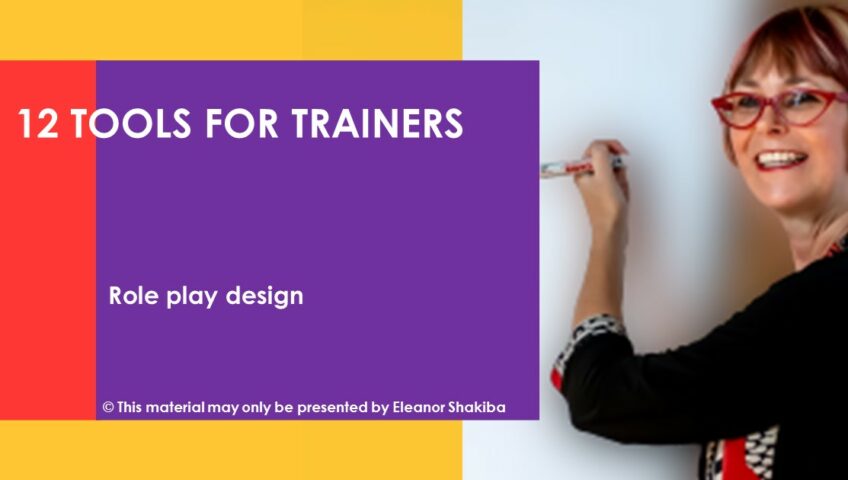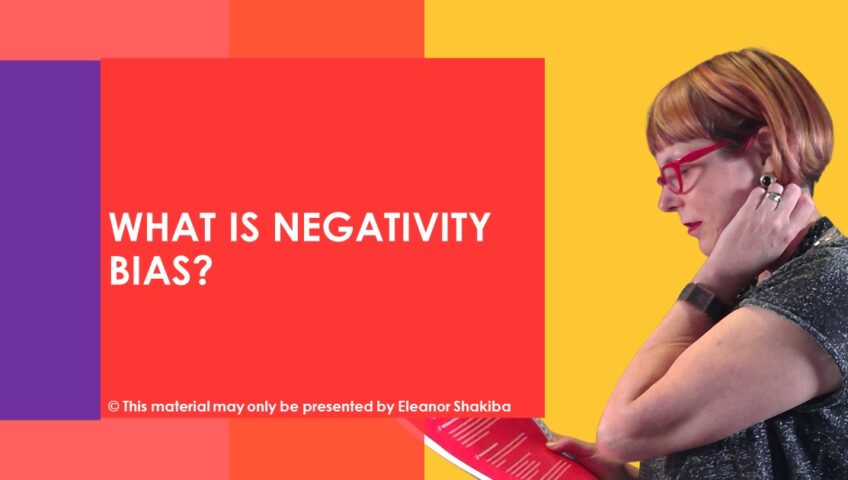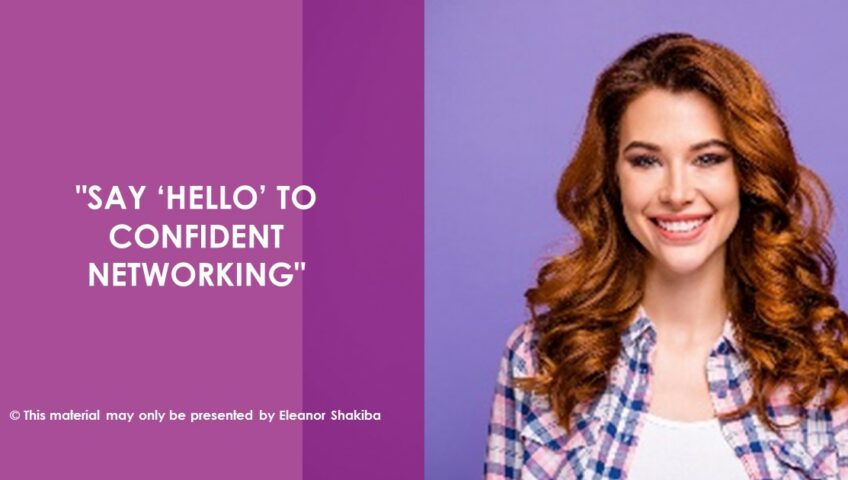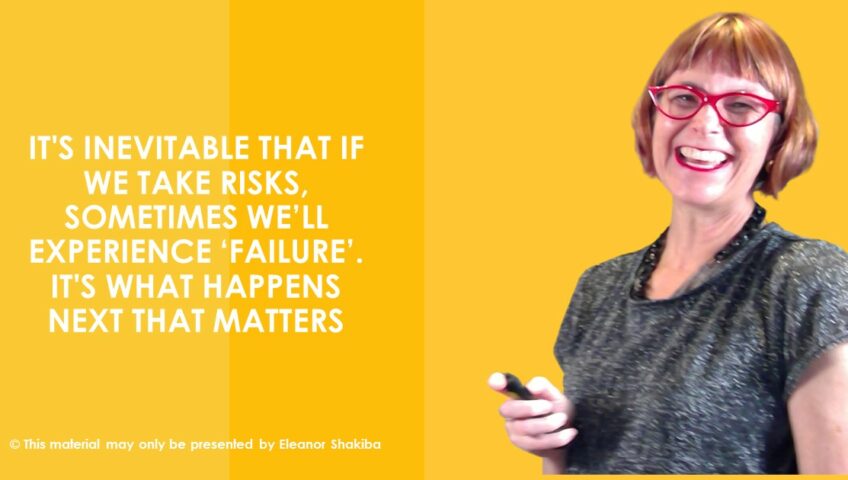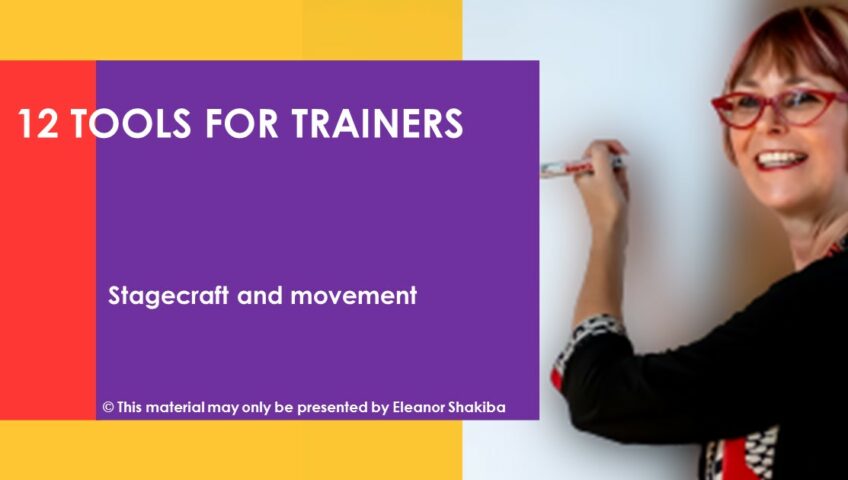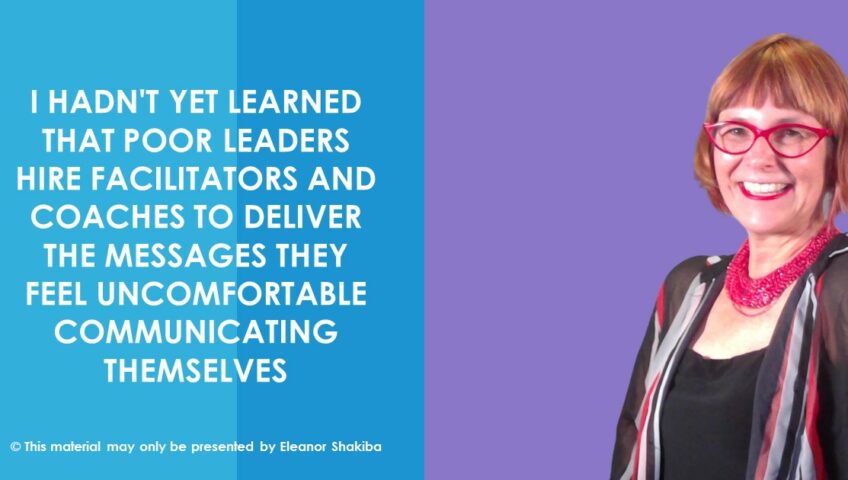Okay. Role play isn’t always popular with course participants. Don’t let that put you off using it, though. It’s a powerful medium for learning, provided you create and set up scenarios that resonate with your group. Aim to create a ‘real play’ environment, rather than an acting class vibe.
Put simply, role playing is an active learning technique in which course participants ‘act out’ scenarios. The purpose of doing this is to apply techniques they have learned during a training program. This means simple scenarios work best. Your participants need to devote ‘headspace’ to processing what they’ve learned. So don’t confuse them by giving complicated briefs and character sketches.
Indeed, it pays to remember that role play began as an improvisational technique. The techniques we use in today’s training rooms were first developed by a Viennese psychologist, Jacob Moreno. He believed that people learn far more from acting out problems than from talking about them. He therefore developed a process for first pinpointing a real-life problem, then playing out different ways of solving it. That structure evolved over time, gradually becoming more ‘scripted’. Today’s role play techniques often combine the acting-out-problems component of Moreno’s model with Harvard University’s case study model. Sometimes, however, the briefs provided to role players become too complex because of this.
That’s ironic, really, when you consider they are called ‘briefs’. Keep that name in mind the next time you are writing a role play scenario. Instead of lengthy descriptions, use dot points in your briefs. Instruct your course participants to imagine they are really in the situation described. Tell them to ‘be true to themselves’ as they play out the scenario. This will reduce anxiety levels and help everyone get the most from the activity.
Another way to reduce ‘stage fright’ is to frame your role play carefully. For example, point out that nothing – except learning – will happen if participants make mistakes during a role play. It’s much better to stuff up in the training room than in real life. Ask them to experiment wildly and try on new behaviours, because learning happens when we do new things.
Finally, remember that introducing an observer is guaranteed to raise stress levels. Instead, hand out debrief sheets and encourage role play partners to fill them in together. This depersonalises the process of giving and receiving feedback. Thus, it makes the role play experience far less daunting.
Overall, your ability to write and set up role plays will impact how much people learn from them. Remember that master trainers don’t just print out role play briefs from the internet. They craft relevant, engaging scenarios that make sense to their course participants.
Want to learn more about being a master trainer? Enrol in a trainers’ master class with Eleanor Shakiba today.
About the author: Eleanor Shakiba
Eleanor is a specialist in positive psychology training. Her core strength is creativity, which she expresses in the training room through storytelling and visual design. She has dedicated her career to helping experienced professionals break through glass ceilings by developing their confidence, communication skills and leadership mastery. Eleanor is qualified in a range of fields including Social Anthropology, Positive Psychology, Counselling, Coaching, Adult Education and Neuro Linguistic Programming. She is also the author of the Positive Psychology Toolkit for HR and L&D Practitioners. This is a free resource for trainers and facilitators

